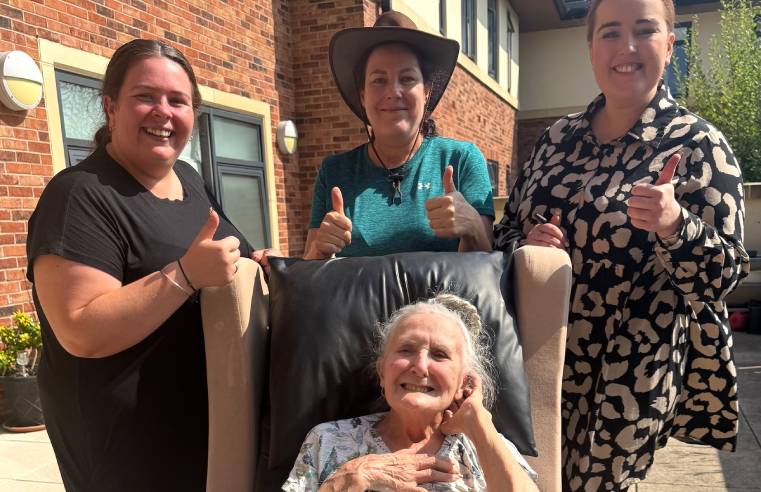A new report has been launched in parliament today, 15th July, setting out the case for a deal for the learning disability sector, focusing on realising the potential of technology to boost investment and transform the way care is delivered.
National learning disabilities charity Hft, supported by Tunstall Healthcare, produced the paper outlining the key arguments for an economic partnership with the government as part of the UK Industrial Strategy – a long-term plan for the future aimed at backing businesses to drive productivity through investment in skills, industries and infrastructure.
The report, which was officially launched at the House of Lords, highlights the challenges faced by a social care sector in financial crisis at a time when demand is growing. Hft and Tunstall believe the successful negotiation of a learning disability sector deal would enable effective investment that could unlock the potential of assistive technologies. In turn, this would stimulate innovation and investment in future services, bring financial sustainability to providers within the sector, and ultimately deliver enhanced outcomes for people with learning disabilities.
To mark the launch of the paper, more than 100 guests, including MPs, peers and civil servants, as well as social care providers and telecare organisations, attended a reception in the Cholmondeley Room. During the reception, Hft Chief Executive Robert Longley-Cook presented the need for a sector deal, and Managing Director of Tunstall Gavin Bashar highlighted the benefits of including technology in services. A person supported by Hft also spoke about the positive difference that assistive technologies have made to the support that they receive.
William, 22, from Bedfordshire has autism and shared his personal experience of how technology helped him to achieve his dream of living independently in the community. He uses a key fob to enter his home, which can be deactivated and replaced if lost, and has a lifeline phone and pendant alarm to use to call for help in the event of an emergency.
Robert Longley-Cook, Hft’s Chief Executive, said: “As it stands, the learning disability sector accounts for around a third of the adult social care spend in England and demand is growing rapidly as life expectancy increases. Despite increased demand, local authority expenditure has not kept up, leading to an anticipated funding gap of £5 billion by 2020.
“With the funding crisis affecting the sustainability of adult social care, the sector and the government must come together to successfully negotiate a learning disability Sector Deal.”
The full report can be viewed here: https://uk.tunstall.com/connected-healthcare/solutions-for-learning-disabilities/
You are here
- Home
- >
- Industry Comment
- >
- Investment in Care Report
REPORT CALLS FOR INVESTMENT IN LEARNING DISABILITY SECTOR
.jpg)
Published on 15/07/2019
Related News
Categories
- CQC ratings
- Care home news
- Care jobs
- Care planning
- Care sector awards
- Care sector events
- Care sector news
- Care staff
- Charity
- Cleaning & Hygiene
- Construction
- Dementia
- Disability
- Entertainment
- Finance
- Fitness
- Food & Drink
- Fundraising
- Furniture
- Health & Safety
- Healthcare
- Hospice & Palliative Care
- Hospitals
- Industry Comment
- Interiors
- Laundry
- Legal
- Leisure
- Medication
- Mental Health
- Mobility
- New appointments
- PPE
- Products
- Property
- Recruitment
- Relationships
- Research
- Safeguarding
- Security
- Services
- Social care
- Sustainability
- Technology
- Training
- Transport
- Uniforms
- Waste
- Wearables

























